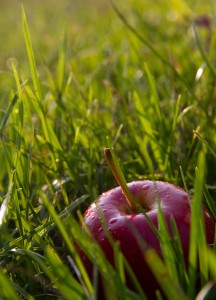The World Has Need of You
June, 2016
The World Has Need of You
A Poem by Ellen Bass from Like A Begger
I can hardly imagine it
as I walk to the lighthouse, feeling the ancient
prayer of my arms swinging
in counterpoint to my feet.
Here I am, suspended
between the sidewalk and twilight,
the sky dimming so fast it seems alive.
What if you felt the invisible
tug between you and everything?
A boy on a bicycle rides by,
his white shirt open, flaring
behind him like wings.
It’s a hard time to be human. We know too much
and too little. Does the breeze need us?
The cliffs? The gulls?
If you’ve managed to do one good thing,
the ocean doesn’t care.
But when Newton’s apple fell toward the earth,
the earth, ever so slightly, fell
toward the apple.
As I recently listened to this poem on Public Radio’s Writer’s Almanac with Garrison Keillor, a question came to me. This is the big question we each attempt to answer when we are at a career crossroads, “What does the world need from me now?” This question is easy for a few, but perplexing and exhausting to many. Let me try to make it a bit easier for you.
In the teachings of Aristotle, the intersection of our talents and the needs of the world is what we are called to discover and do. Where is that elusive connection between what the world needs and what we are especially good at and want to give it? Often, the answer resides in our history.
“Life is lived forward, but understood backwards”, wrote Danish philosopher Soren Kierkegaard. If you are seeking your next calling, whether it be personal, professional or in service to the community, begin by looking backwards. With my clients, I always begin a coaching engagement by hearing their life story. I then ask them to complete the top eight accomplishments exercise described in my June, 2012 blog.
After hearing their story and reviewing their top eight achievements, I ask, “What are some of the golden threads that connect your stories? What future paths are suggested by your most memorable past experiences?”
I explain the practical reasoning behind these history exercises. When we are discussing possible future jobs, for instance, I remind my clients that to a prospective employer, the best predictor of future performance is prior performance in similar circumstances.
Stories are both part of the assessment and discovery process, and also offer important historical proof and predictors of future effectiveness. They are not, however, the only predictors of future success and satisfaction. Logic and a career continuation strategy might lead us to the next chapter on a path similar to those we have followed for years, but we must also keep an open mind and an open heart. Why not be open to letting both logic and happenstance guide our next step?
While the odds usually favor continuation, don’t avoid the prospect of an interesting detour. One of my favorite theories marries intentionality with chance. How happenstance factors into life and work direction is best described by Stanford professor John Krumbholz,
“A satisfying career — and a satisfying life — is found through actively creating your own luck and making the most of new and unforeseen experiences.”
from Luck Is No Accident, by John Krumbolz.
This blog has offered some strategies to help you discover what the world needs next from you. Look back, then look ahead with the wisdom of hindsight. Most of us choose a continuation of our most familiar path, but don’t be trapped by history. Know that your next chapters will take you to both places familiar and places unknown. Don’t be too quick to settle your focus. The greatest rewards are often tied to the greatest risks. Happy trails of discovery to you. The world has need of you.


